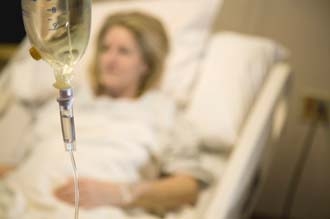
DOCTOR shortages will get worse, more than two million patients will avoid medical care and more than one in ten will not get their scripts filled as a result of the Budget.
The shortage of general practitioners in poorer areas will be made worse by the $7 GP fee because doctors won’t work where patients can’t afford to pay, a GP group says, and nursing home visits may become economically unviable.
Medical statistics reveal there are already 40 per cent fewer GPs per 100,000 population in Sydney’s West than in the inner city or eastern and lower north shore suburbs.
Bulk billing rates in the region are up to 99 per cent and there is growing concern doctors in the area won’t be able to charge the $7 fee without suffering a loss of business.
Other areas already facing a doctor shortage include Maryborough in Queensland and Bendigo in Victoria.
Royal Australian College of General Practices president Dr Liz Marles says the $7 GP fee will make the doctor shortage in these regions worse.
“I think Western Sydney already has a crisis in terms of GP workforce and I think we could see that worsen,” she said.
Doctors will have to take the fee into account when they decide where to practice to ensure the business was viable, she said.
“If you were looking at an underprivileged area, a low socio-economic area where there are a high proportion of patients who may not be able to pay, I wouldn’t be looking to set up there,” she said.
It comes as Health Minister Peter Dutton concedes his department expects 2.3 million people will avoid the doctor as a result of the $7 fee next year.
Doctors are concerned patients who can’t afford the fee will be diagnosed late and require much more expensive hospital treatment as a result.
University of Western Australia academic Professor Anna Kemp reckons up to 11 per cent of patients will not buy their prescription medicines when the charge rises by $5 next January.
Last time the government raised script prices by $5 in 2005 up to 11 per cent of patients did not fill their scripts, she says.
And Diabetes Australia yesterday warned the 700,000 Australians with diabetes would be facing hundreds of dollars in extra medical charges as a result of the budget changes.
“They not only need to see their GP regularly, but they need eye checks, kidney checks, heart and vascular checks, and regular monitoring to help prevent serious complications of diabetes,” Diabetes Australia chief Professor Greg Johnson said.
“In the worst case scenario, people visiting their GP regularly and taking three or four different medications could be out of pocket for hundreds of dollars more per year for diabetes management alone. And diabetes runs in families and often there is more than one family member with diabetes,” Prof Johnson said.
Doctors are also warning pensioners and children they may be charged the $7 fee for more than the ten visits stipulated by the government because doctors won’t know when patients have reached the ten service limit which allows them to be bulk billed.
The government claims to be developing a computer system that will notify GPs when the ten service limit is reached but it is not ready yet.
“Our concern is that the system hasn’t been developed yet and it may be more complex to develop than the government is suggesting given the troubles we’ve seen with the Personally Controlled e-Health Record,” she said.
“There are some practices that aren’t even computerised”, she said.
Nursing home patients may also miss out on visits from the doctors as a result of the fee and will be shunted into hospital emergency departments, she says.
“All the nursing home patients I see never have any money, they can’t handle money and when we go and see them we generally bulk bill,” she said.
Doctors would be getting paid $5 to $14 less for these visits under the government’s changes and this would make it uneconomic to visit nursing homes.
“I have great concern about what will happen to those patients and its quite likely that instead when something goes wrong they’ll be sent to the hospital inappropriately,” she said.
Source: News.com.au
